A Postpartum Insurance Policy
You just gave birth. Your hormones are raging. Your life just changed forever.
What if I tried to sell you an insurance policy that could insure a more positive transition for you? What if it was your own placenta and eating it was part of that policy? Ladies, let me introduce you to…
Placenta Encapsulation For Ingestion
As a kid, I remember my hippie mom and her friends talking about placenta lasagna and placenta stew. I remember thinking, I’m not sure what placenta is but I’m steering clear of stew and lasagna for a while, just in case. I had no idea that they were talking about growing an organ in their uterus’, passing it through their vaginas and then EATING IT!!!! I always thought they were weird but this took the cake!
BUT….
My mind has been changed. It’s amazing what a little education can do for someone… So, let me share what I’ve learned!
First of all, we are mammals. MOST (not all) mammals ingest their placentas after giving birth. Of the ones that don’t, most are water mammals. Whales for example do not. When a whale is just about to give birth, the cord and the baby separate, the “calf” is born and when the placenta is born, it falls to the bottom of the sea and the mother is not able to ingest it.
Marsupials, particularly kangaroos don’t ingest their placenta either. Instead their bodies absorb their yolk-type placenta and they never expel it. They essentially reap the benefits of it by never having it leave their bodies.
So, why are mammals doing this? Some say that they do it to “hide” the smell of birth to keep predators away. I know first hand that this is not true. When I come home from a birth at the hospital, my dog goes crazy sniffing my shoes! He knows I have been around blood or at least something that smells very interesting to him. I don’t believe for one second that mammals eat their placentas to keep predators away, the predator can smell the baby and the blood anyway.
Instead, I believe it is instinctual. Instinctual because our bodies require it’s offerings for optimal recovery from birth. Physical AND emotional recovery from birth. The benefits include but are not limited to, increased postpartum energy levels, decreased postpartum depression and increased milk supply.
Now, clearly most of us consider ourselves far too sophisticated to pick up the meaty bloody organ that just passed through our vaginas and take a bite out of it so… we encapsulate it.
Let me explain!
YOU bring your placenta home from the hospital. (I say YOU because it is actually illegal to drive around with someone else’s body parts in your car and at Northeast Doulas we like to follow the rules!)
Next, your placenta encapsulation specialist comes to your home (with all of her own equipment and supplies) and prepares your placenta. She sets it up on a dehydrating machine (like you would make beef jerky). She cleans up and heads home.
The next morning, she comes back and crushes the dehydrated placenta. She crushes it (magic bullet style) and puts it into gel capsules via an encapsulation machine. She discusses dosage instructions with you and answers any questions you may have.
When she leaves, you are left with a beautiful bottle of the most organic birth recovery supplement on Earth! Your placenta!
Now knowing the benefits and the process, it makes sense. Why wouldn’t we do this? I like to think of it as an insurance policy. Maybe it’s too weird a concept to wrap your head around… BUT… If you leave it at the hospital as medical waste and a week or two later you find that you are struggling with postpartum emotional issues or low milk supply issues, you can’t go back and get it. Once it’s gone, it’s gone. My advice? Bring it home. Have it encapsulated and have the peace of mind that a good insurance policy brings you!
Authored By: Randy Patterson

